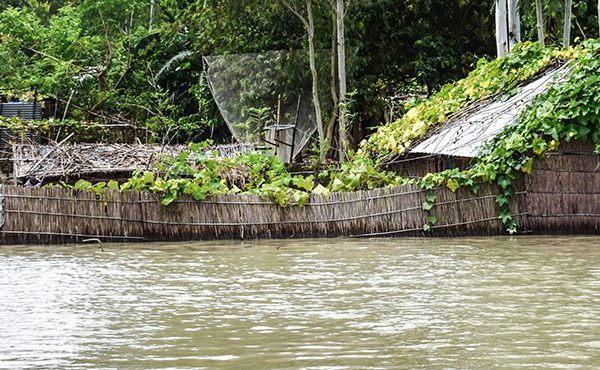Waste to welfare: A tale of Jamalpur and its people
Reading Time: 3 minutes
The amount of waste water produced each year by Jamalpur town that ends up in its lakes is enough to fill the Empire State Building in New York.
The town, located in northern Bangladesh, experienced a four-fold increase in population over eight years. As a result, the growing amount of improperly disposed waste continued to pollute Jamalpur’s natural essence. The local government and community were keen on finding practical solutions and were drawn to ideas that explored ways to keep the environmental sanctity of Jamalpur intact.
BRAC partnered with the local government to test a cost-effective and sustainable way to ensure that people had access to safe waste disposal options. Since then, the initiative garnered considerable positive response from the community. In a fascinating story of how waste is used as a tool to promote social welfare, we take you through the lives of those who are helping to set an example for the country.
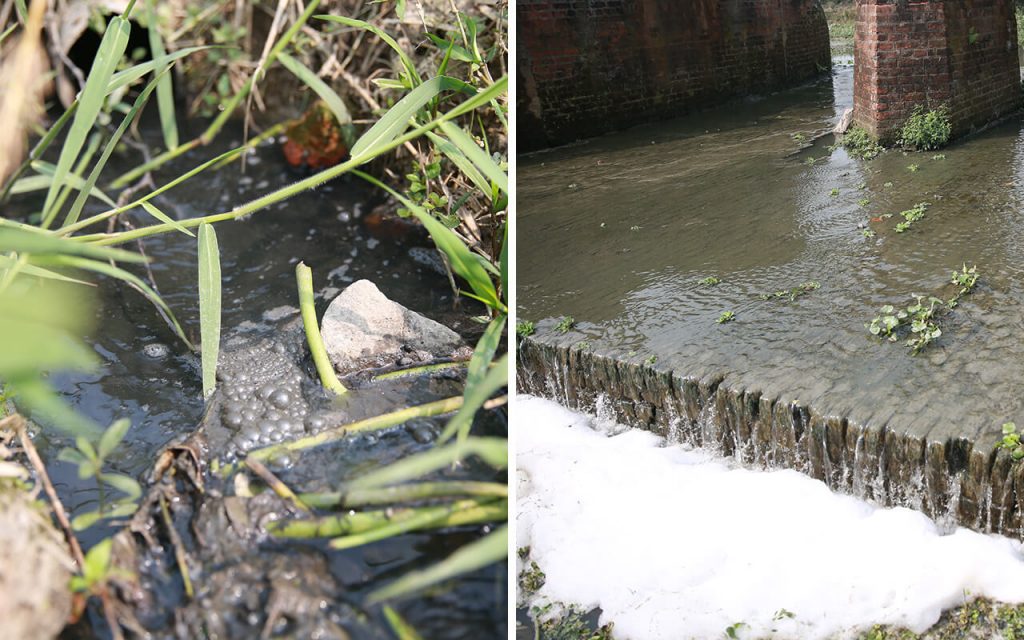
“This is my first formal job with a fixed salary. Even though I have been helping my father clean drains and sweep streets for as long as I can remember. Back then not only was it was a thankless job, it was a real struggle to make ends meet by going from door to door asking for work. In my new job as a pit-emptier, I can sense that people look at me differently, with slightly more respect, when I arrive at their doorstep.’’ – Ponkumar Bhaskor, pit emptier

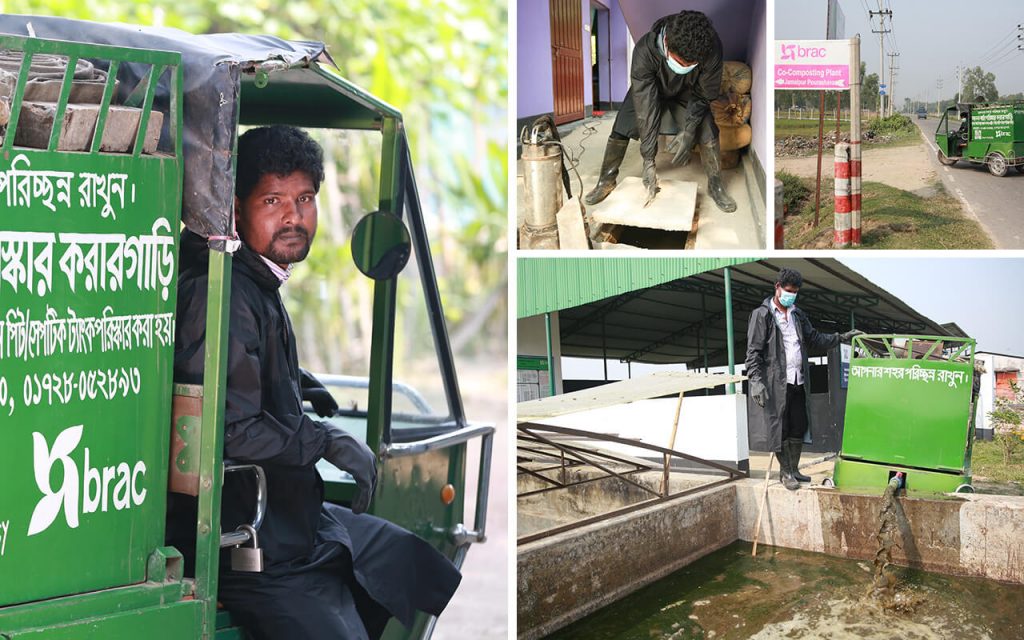
Ponkumar is one of the pit-emptiers currently working for BRAC , doing the same thing he did earlier but with a sense of dignity. Being born to a Harijan family sealed many doors to a better life. Ponkumar’s story showcases how establishing a value chain out of collecting and processing human waste has the potential to benefit people from multiple socioeconomic segments.
“I am not very educated. I was constantly being let go from meagre jobs, and desperately needed a steady income for my family. One day a BRAC officer gave me the opportunity to become my own boss and run a business of collecting trash. They even offered a loan for me to purchase a van on installment. Now I make BDT 20,000 a month and will soon be making my last installment deposit.” – Nur Hossain, solid waste entrepreneur
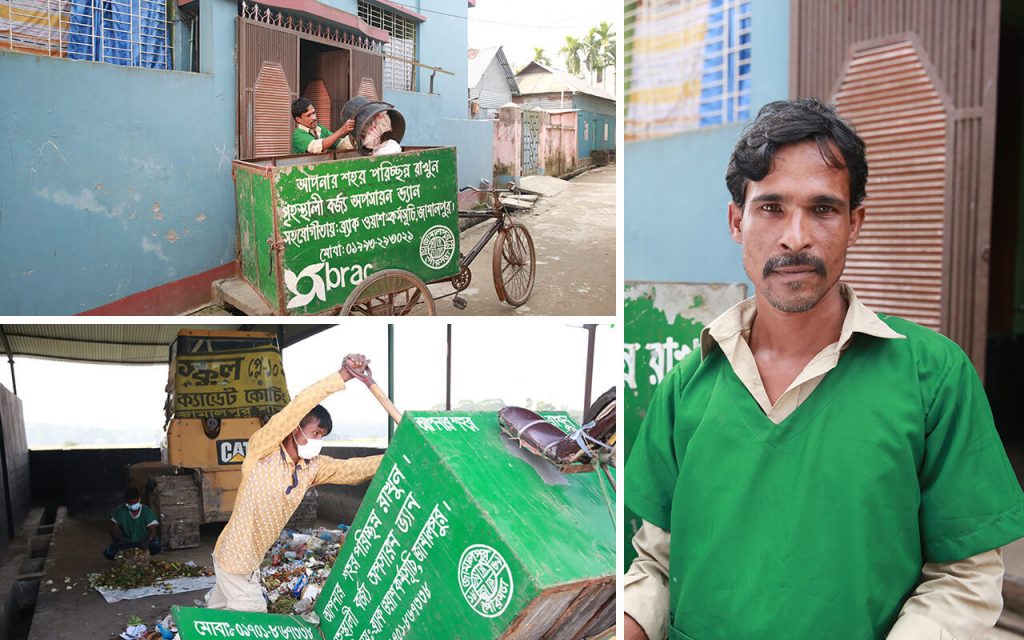
There are currently three solid waste entrepreneurs like Nur Hossain that are working with BRAC. Unlike pit-emptiers, these individuals operate independently and generate income in two channels; one by charging a monthly fee to houses they serve and the other by selling their collected kitchen waste to BRAC. Only the biodegradable waste products are combined with dried fecal sludge to get processed into organic compost.
“Whenever I visit my uncle in Dhaka, I can never walk outside without a wearing mask. There is a constant stench from open manholes and piles of rubbish that people throw onto the streets. I feel relieved that I can at least breathe easy when I am back here. I certainly want to do my part to keep my neighbourhood as clean as possible.” – Mohammad Rokon Ali Khan, student

Rokon is among the young community members of Jamalpur who are concerned about the cleanliness and beauty of their hometown. A student of Government Ashek Mahmud College, Rokon is one of the initial group of people who signed up for BRAC’s waste disposal service.
“The first time an officer from BRAC came to me and explained what he was selling, I was shocked. It took me some time to accept that the compost was the result of processed toilet waste and other trash. But then I used it on a small piece of my land to grow eggplants, and I was surprised by the outcome. My first harvest was sold out in a very short time and customers kept asking to buy more.” – Mokbul Hossain, farmer

The nutrient-rich compost mix gained popularity among the farmers because of the high quality yield and low costs incurred. Farmers like Mokbul, who have been successfully trialling the product, are integral to the success of the project. An interesting scope to expand the value chain in the future is to cater to fish farmers as research has suggested that organic composts can make for a good fish feed alternative.
The goal behind BRAC’s fecal sludge management project was to prove that such market-based solutions are effective and in demand. To do so, we supported the Jamalpur municipality administration to strengthen their existing waste management system in three ways; by establishing necessary infrastructure, building capacity of locals and introducing innovative tools.
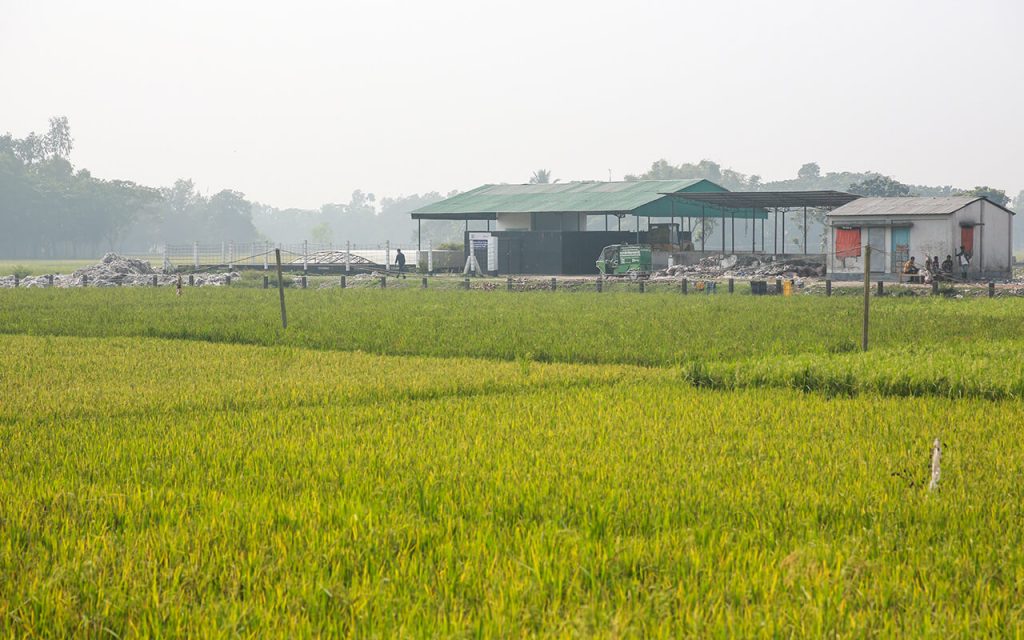
With permission, BRAC renovated the existing government owned waste management plant, and built components needed to process fecal sludge into a compost mix.

We injected innovation to the waste collection process by building a Vacutug; retrofitting an auto-rickshaw with a 700 litre containment tank. This lightweight vehicle can easily reach areas which can only be accessed through narrow, unpaved roads.
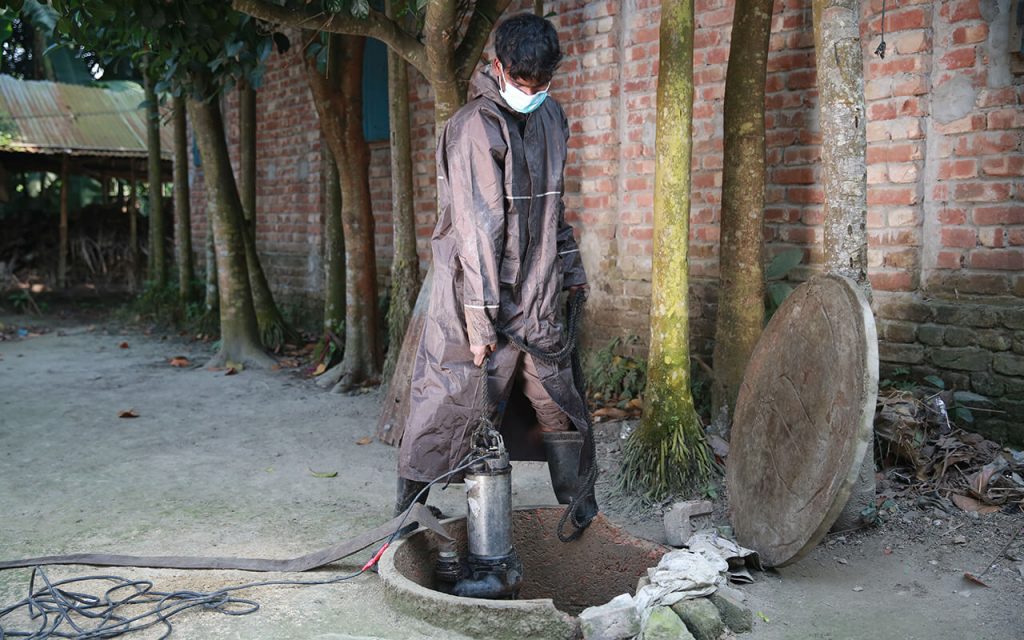
BRAC also trained informal sweepers to become professional pit-emptiers, who can not only operate machinery like the Vacutug but are also equipped with the knowledge of processing waste products.
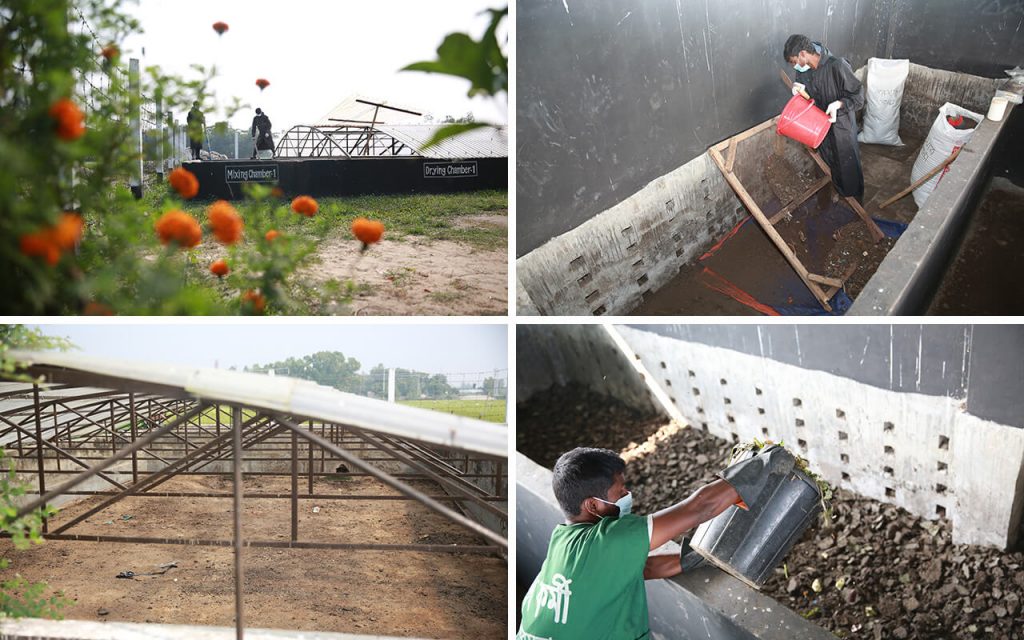
This year’s World Toilet Day is dedicated to exploring nature based solutions to prevent human waste from harming the environment. Bangladesh as a whole has made remarkable achievements in sanitation and hygiene, like ending open defecation and mass adoption of pit latrines, but is still struggling when it comes to waste management. Lack of proper sewage networks, crude dumping practices and high contamination of water bodies are some of the major obstacles. The continued success of projects like the one BRAC is running in Jamalpur are likely to provide the solution needed.
The long-term impact of the services provided by Ponkumar and Nur go beyond just clearing Jamalpur’s trash on a daily basis. Their work is helping to create demand for more public-private collaboration based services, to the point where others would adopt BRAC’s fecal sludge management model and scale it further.
Ali Iqbal Murshed is an external communications specialist for BRAC Communications. Zarfisha Alam is a senior sector specialist for knowledge management and innovation, WASH.



